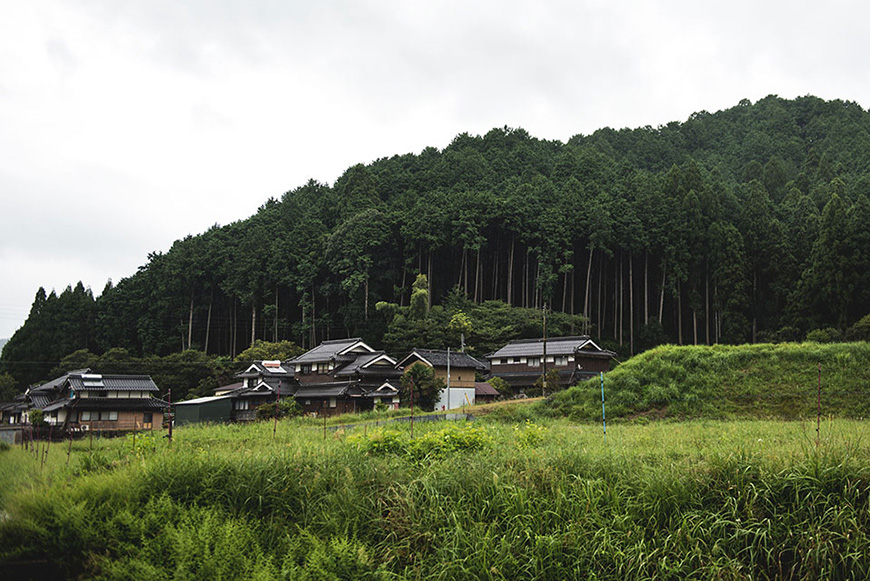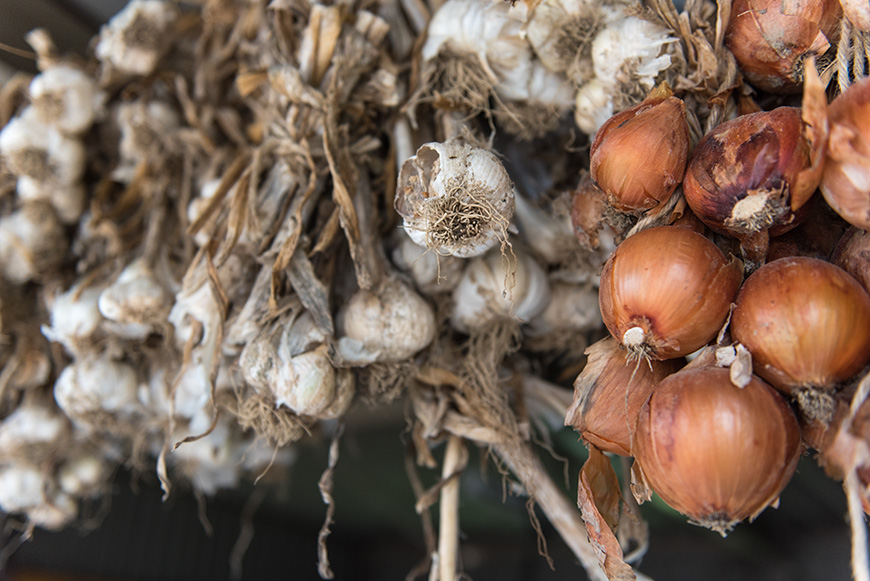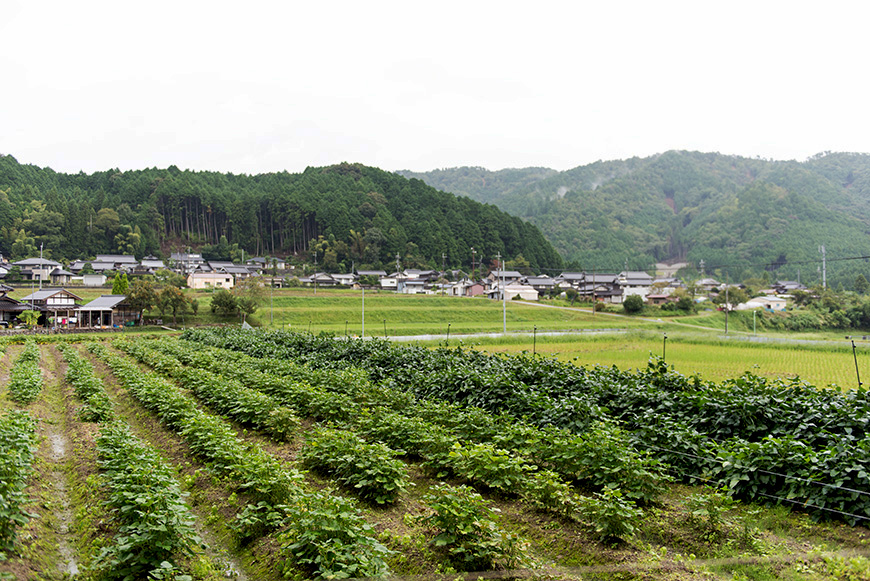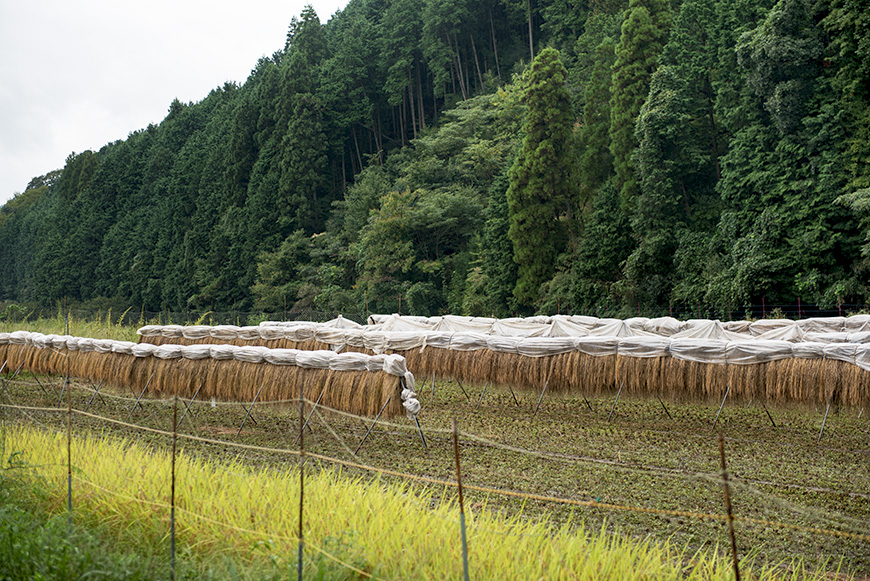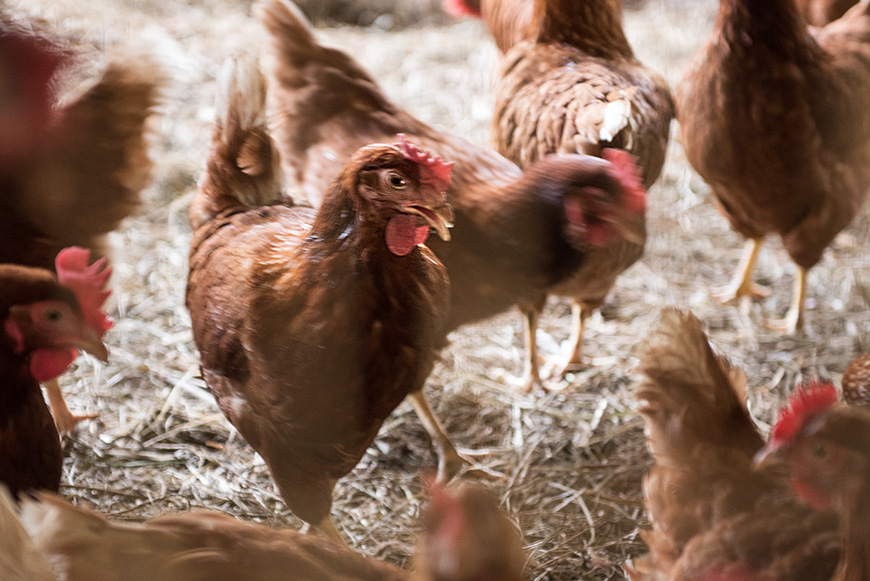Spiders scurried away as I pulled open the privacy screen in the telephone booth. Shielding my eyes from the rain, I attempted to fit my luggage and myself inside the impossibly tiny space. The 10-yen coin in my pocket bought me about one minute to talk.
“Moshi moshi?” I heard on the receiving end moments after dialing.
“Shinji-san? I’ve just arrived at Ichijima station.”
“Great! I’ll send someone to get you.”
Thanking him, I hung up and made my way over to a corner that had managed to escape the rainfall and I sat tight. A child peered at me curiously from under his hoodie. I could almost guess his exact thoughts, perhaps something along the lines of, “what is this foreigner doing so far out here in the country?” As I nodded with a polite smile his eyes grew wide and he glanced away quickly, caught.
Indeed, what was I doing out in the middle of nowhere during typhoon season? Initially, I had wanted to see “true” Japan and entertained the notion that maybe if I got as deep into the countryside as I could, that might just be a good place to start. Upon further research I found a man named Shinji Hashimoto who was on the board of International Federation of Organic Agriculture Movements, which essentially votes on and sets standards for organic farms to maintain. Fascinated, I reached out to him requesting a visit to his farm in order to learn what I could about his organic practices. Next thing I knew I was on a train from Kyoto to the farming village of Ichijima.
My thoughts were interrupted by headlights piercing through the rain. The car door opened and the small frame of a woman stepped out under the cover of an umbrella, calling out, “Laura-san?” I waved as I made a bee-line with my bags towards her, introducing myself with a bow. “Hajimemashite,” she replied in kind, “I am Keiko, Shinji’s wife. Welcome!” With my luggage tucked snugly inside the car we headed off into the night.
Windshield wipers going full throttle, Keiko put in a cassette tape and the all-too-familiar melody of “Bohemian Rhapsody” filled the air. Grinning widely, I declared my love for Queen.
She heartily agreed, then eyeing the questionable weather conditions told me that a typhoon was coming. “I hope the sky will be clear enough for you to see the farm tomorrow,” she said, wistfully. As we pulled up to the house Shinji and his farmhand came out meet us. Traditional Japanese greetings were exchanged quickly and I was then led to the guestroom. After being informed that dinner would be served shortly I was given a chance to settle in. Not one to make my hosts wait—especially in Japan—I hurried to throw on a dry outfit and joined them in the kitchen.
After a chorus of “Itadakimasu,” we tucked into the meal. It turned out that Keiko is an amazing cook, and I told her as much. She denied it humbly, as I expected she might. She explained that the dish of bitter melon was a popular ingredient used in Okinawan cuisine. Apparently, the Okinawan people are known to live longer than most mainland Japanese, and therefore their cuisine is trending with hopes that others will be able to reap the same benefits. I held back the thought of Okinawans having the advantage of living on a more relaxed tropical island while many Japanese people work to the bone in fast-paced cities.
I chose this moment instead to inquire into the true meaning behind the phrase, “Itadakimasu,” that is said before each meal. Upon reflecting, Shinji revealed that it is said in order to give thanks to the animals whose lives helped to feed others, honoring everyone involved in the act of what it took to bring the meal to you, including the work of the farmers and hunters who were part of the process. Finally, a reminder to not waste even a grain of rice, and to be thankful for all that you receive unto you.
Down to the last grain of rice. As I sat there pondering that profound sentiment, I realized that it wasn’t even just a simple “sentiment,” but rather a core philosophy of Japanese culture echoed in the integral Japanese phrase, “Mottainai.” Roughly translated, it denotes the philosophy of not letting anything go to waste.
I resurfaced from my musings as I recalled the reason I was there in the first place and asked, “Shinji-san, what got you into organic farming in the first place?” He gave a sort of weighted smile before answering, “It’s a long story, but let’s just say that it spoke deeply to me.”
Speaking more openly, he went on to explain that he wasn’t born into a life of farming. Quite the opposite, as his dad was a salaryman. A smile formed at the corner of Shinji’s mouth as he recalled the time his father brought home a karaoke box to hone up on his skills for the next after-work outing with his boss. From what I’ve deduced about the life of a salaryman, it seems that in addition to putting in long hours at the office, company men are expected to stay in the boss’s good graces by engaging with them in a night of drinking and letting loose (often returning home late or staying at a capsule hotel if they missed the last train). If that didn’t sound demanding enough, I was soon to discover that the life of a farmer was even more taxing.
Besides the physically-intensive stress on one’s body and a strict regiment of various responsibilities around the farm, there were other dangers to worry about. Shinji told me about a landslide in his village years ago that put two feet of dirt into their home. There was so much flooding that they weren’t sure they could recover: he heavily considered giving up farming. You can still see evidence of the landslide by the large patch of concrete disrupting the otherwise pristine green mountains that surround Ichijima.
Land is scarce in Japan: roughly 70 percent of the country’s area is mountainous, leaving about 15 percent of the remaining suitable for agriculture. Therefore, Shinji shares fields with other farmers, and his crop plots are spread throughout the village. Along with three other farms, he provides CSAs (community supported agriculture) for about 150 families in the area. Bakeries in nearby towns also use eggs from his chickens. Ichijima truly is an agriculture-centric community, celebrating fresh produce down to every micro-season. There are even festivals where people pray at shrines, asking the Gods to come down from the mountain bringing with them a bountiful harvest.
We finished the splendid meal with a customary “Gochisousama deshita,” which I took to be a rough translation of “It was a feast,” yet also bearing a deeper meaning similar to “Itadakimasu.” Having been politely but firmly denied my offer to help wash the dishes by Keiko, I expressed my thanks for dinner once more and turned in for the night in anticipation of the day ahead.
Up bright and early, we enjoyed a quick and nourishing breakfast before suiting up in rain gear and clunky rubber boots. We loaded up Shinji’s truck with the equipment necessary for the day, I climbed in, and then we rode off to feed the chickens. I took in the sweet smell of rain as the morning breeze whipped through my hair. Mist had settled in the mountains and rice paddies were brimming with last night’s foreshadow of the approaching typhoon.
We arrived at a sheltered barn to feed the chickens and ducklings. I wasn’t entirely sure what to expect, but I was almost surprised at the scent that greeted me: the manure smelled sweet and somehow fresh, not unlike my mother’s garden bed. I asked Shinji about it and he explained that his chickens eat a mixture of corn, lactose (milk and yogurt), and weeds. Since they are not forced into a cage they don’t have a stressful environment that is more commonplace in the U.S., for example, so it only smells like fresh earth.
Shinji went on to tell me that he makes his own feed because the store-bought kind sits around in a warehouse where pesticide sprayed on the insects trying to break through the packaging seeps in, poisoning it. I learned that Shinji employs many organic practices in order to create a healthy environment for his animals and produce. Unfortunately, he cannot technically call his entire farm “organic” because although his vegetables are certified organic, the milk he receives is pasteurized.
We spent the morning collecting eggs, watching the adorable ducklings take a bath, and feeding the energetic chickens. As Shinji showed me how to make more feed he mentioned that the microbes in the yogurt help the chickens to fight off diseases. By preparing the feed himself he can avoid overdosing them with too many hormones from the lactose.
It was lunchtime before I knew it so we loaded up the truck and headed back for a break when we saw what looked like a stork enjoying a meal in the rice field. Shinji suddenly looked excited and slowly pulled off the road. As we watched it from afar he started to say how the oriental white stork, a national treasure, became extinct in Japan in the early 1970s. Luckily, as I later found out, the nearby prefecture of ToyoOka was given several chicks by the Russian Far East to help bring the species out of extinction. Shinji motioned to a bright yellow ring around one of its legs, mentioning that it would have the designated number stamped on it.
Apparently, soon after the storks were released into the wild they started getting sick and dying after eating from the rice fields that used pesticides. The government then began funding organic farms in the region in order to create a sustainable home for the storks to repopulate. Now there are close to 100 white oriental storks in the region, which is really quite exciting for Japan.
Back at the house, Keiko had prepared another delicious home-grown meal for us, which we happily devoured before heading out to do a little harvesting. We visited three different fields around Ichijima to inspect the crops and pick the ones that were ready. I was taught the proper way to take them off the vines in order to ensure that the plant continues to produce more. My basket was soon overflowing with jewel-like vegetables which I then unloaded into the truck. Our healthy haul consisted of hot peppers, okra, eggplant, and bitter melon.
We returned with our bountiful harvest, only having just escaped the rain. The sky then opened up, and I found myself sitting near the door over a pile of burdock roots, snapping off the extraneous bits before they would be sent out as part of the CSA collection. Droplets quickly became a downpour. The scent of sweet earth echoed by the fresh-cut burdock was intoxicating. I heard the familiar sounds of water simmering on the stove and the delicate, rhythmic chopping of Japanese steel on a cutting board. I closed my eyes, willing myself to transfix this moment into a memory.
Gathering around the table for dinner, we were greeted by rice bowls alongside miso broth with sliced okra that adorned our place settings. Keiko set before us platters of gleaming, fresh-picked vegetables and something that resembled sticky lentils, which I soon found out was actually natto (fermented soybeans). It had a pungent, nutty flavor—perhaps a little too much for my taste—which I felt accompanied the rice well when served with a raw “onsen egg” that turned white against the heat of the grains below it.
We took turns trading stories of our adventures from around the world and curiosities into cultural identities, all the while passing dishes for seconds and thirds. I found that I was truly grateful for this brief view into the life of a Japanese farmer. Although much of it is rigorous work, there are parts that seem to feel intangible: there is a reward in being able to feast on what you’ve grown with your own two hands from seed to harvest, cultivating rice paddies, and raising chickens so that you may enjoy the freshest eggs.
For Shinji, he can sleep well at night knowing where everything has come from with his implementation of organic practices on his farm. There is a deep sense of pride for him in that, and I couldn’t help but feel it, too. We said our goodbyes and I left the farm with my belly full and my heart a little lighter, having had a glimpse into their world to see the great satisfaction of their livelihood.

